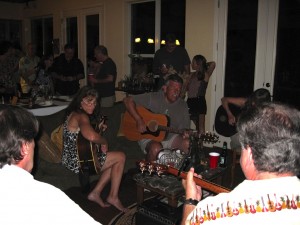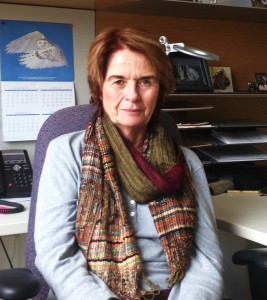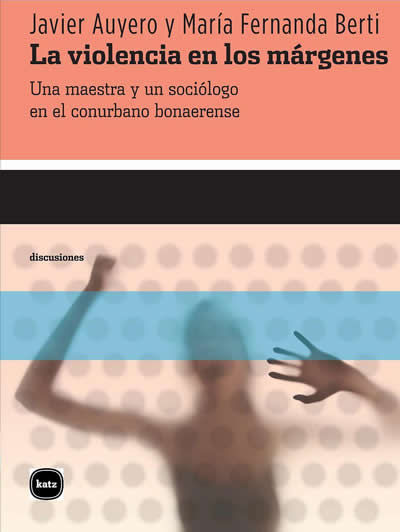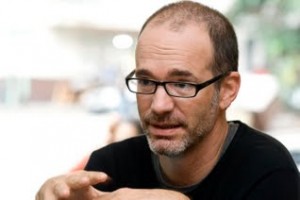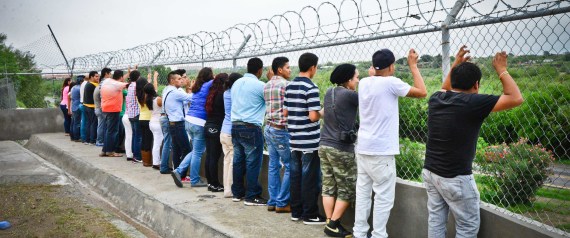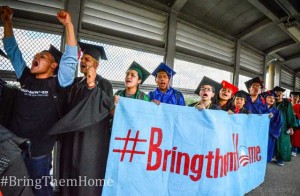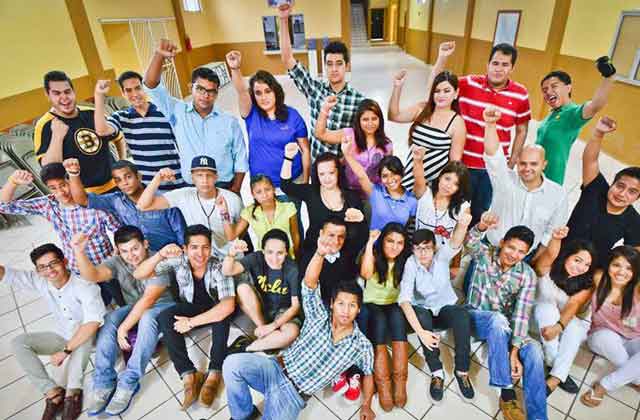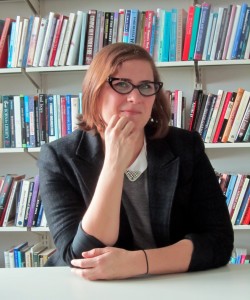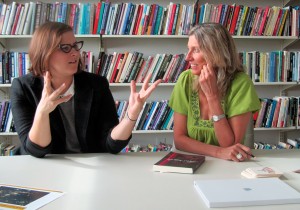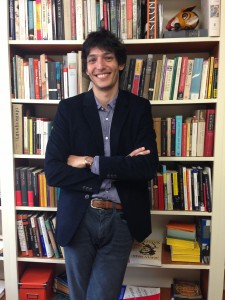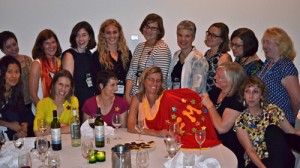
The University of Texas at Austin is well-represented once again at the American Sociological Association‘s Annual meeting in New York, New York. You can find the Annual meeting program schedule here. Listed below are UT Austin students and faculty who will be presenting their work August 10-13. Abstracts of their work
Adjepong, Lady Anima
Regular Session. Race, Class, and Gender
Unit: Race, Class, and Gender
Scheduled Time: Tue Aug 13 2013, 8:30 to 10:10am
Presenter on individual submission: What Do You Call a Woman with One Blackeye? Readings Bruises on Women Rugby Players
Angel, Jacqueline L.
Table 04. Living Arrangements
Unit / Sub Unit: Section on Aging and the Life Course / Section on Aging and the Life Course Roundtables
Scheduled Time: Sun Aug 11 2013, 2:30 to 4:10pm
Non-Presenter on individual submission: Contextualizing Older Mexican American Living Arrangements: The New Old Age and the Constraints of Culture
Angel, Ronald J.
Journal of Health and Social Behavior Editorial Board
Scheduled Time: Mon Aug 12 2013, 8:30 to 10:10am
Session Submission Role: Participant
Arevalo, Ellyn Margaret
B. Table 20. Sex and Gender
Unit: Open Referreed Roundtables
Scheduled Time: Sun Aug 11 2013, 10:30 to 12:10pm
Session Submission Role: Table Presider
Presenter on individual submission: The Self-Perceived Effects of Pornography by Those Who Use It
Averett, Kate H.
Regular Session. Family and Kinship: Gender and Families
Unit: Family and Kinship
Scheduled Time: Sun Aug 11 2013, 8:30 to 10:10am
Presenter on individual submission: Raising Them to Be Who They Truly Are: LGBTQ Parents Resisting Heteronormative Gender
Table 10. Fathering and Labor Force Participation
Unit / Sub Unit: Section on the Sociology of the Family / Section on the Sociology of the Family Roundtables (one-hour)
Scheduled Time: Tue Aug 13 2013, 10:30 to 11:30am
Session Submission Role: Table Presider
Beaver, Travis
Table 06. Music and Culture
Unit / Sub Unit: Section on Sociology of Culture / Section on Sociology of Culture Roundtables
Scheduled Time: Sun Aug 11 2013, 8:30 to 10:10am
Session Submission Role: Table Presider
Presenter on individual submission: Devo’s “Standardized Computer Rock”?: The Influence of Critiques of Mass Culture on Music Criticism
Brown, Letisha
Section on Race, Gender, and Class Paper Session. The (Un) Anticipated Consequences of Race, Class, and Gender Surveillance in Public Space
Unit / Sub Unit: Section on Race, Gender, and Class / The (Un) Anticipated Consequences of Race, Class, and Gender Surveillance in Public Space
Scheduled Time: Sat Aug 10 2013, 4:30 to 6:10pm
Presenter on individual submission: Sporting Bodies in Descent: An Intersectional look at Black Female Athletes
Student Forum Paper Session 1
Unit: Student Forum Sessions
Scheduled Time: Sun Aug 11 2013, 8:30 to 10:10am
Session Submission Role: Presider
Butler, John Sibley
A. Table 29. Political Economy
Unit: Open Referreed Roundtables
Scheduled Time: Sat Aug 10 2013, 2:30 to 4:10pm
Presenter on individual submission: Hi-Tech and Military Capital- Israel’s Economic Development Model
Regular Session. Blacks and African Americans
Unit: Blacks and African Americans
Scheduled Time: Mon Aug 12 2013, 8:30 to 10:10am
Presenter on individual submission: Old Southern Codes in New Legal Bottles? Race, Sexual Harassment and Organizational Science
Cantu, Phillip
Section on Disability and Society Paper Session. Interrogating Disability as an Axis of Inequality
Unit / Sub Unit: Section on Disability and Society / Interrogating Disability as an Axis of Inequality
Scheduled Time: Tue Aug 13 2013, 12:30 to 2:10pm
Presenter on individual submission: Meritocracy for some: Disability and Bachelor’s Degree Attainment.
Cavanagh, Shannon
Regular Session. Social Class and the Early Life Course
Unit: Children/Youth/Adolescents
Scheduled Time: Sun Aug 11 2013, 8:30 to 10:10am
Session Submission Role: Session Organizer
Regular Session. Social Connections and Adolescent Development
Unit: Children/Youth/Adolescents
Scheduled Time: Sun Aug 11 2013, 2:30 to 4:10pm
Session Submission Role: Session Organizer
Table 02. Gender and Sexuality
Unit / Sub Unit: Section on Communication and Information Technologies / Section on Communication and Information Technologies Roundtables (one-hour)
Scheduled Time: Sat Aug 10 2013, 4:30 to 5:30pm
Presenter on individual submission: Nothing Ventured, Nothing Gained: Gender, Agency, and Homophily in Online Dating
Table 17. Gender Ideologies, Differences, and Norms
Unit / Sub Unit: Section on Sociology of Sex and Gender / Section on Sex and Gender Roundtables (one-hour)
Scheduled Time: Mon Aug 12 2013, 8:30 to 9:30am
Session Submission Role: Table Presider
Charrad, Mounira Maya
Regular Session. Arabs and Arab Americans
Unit: Arabs and Arab Americans
Scheduled Time: Mon Aug 12 2013, 10:30 to 12:10pm
Session Submission Role: Presider
Regular Session. Sociology of Middle East and Muslim Societies
Unit / Sub Unit: Middle East and Muslim Societies, Sociology of / Sociology of Middle East and Muslim Societies
Scheduled Time: Tue Aug 13 2013, 2:30 to 4:10pm
Presenter on individual submission: WOMAN FRIENDLY REFORMS OF ISLAMIC LAW UNDER AUTHORITARIANISM: Tunisia from the 1950s TO 2010
Chen, Wenhong
Section on Communication and Information Technologies Paper Session. Who’s Lonely Now? Examining the Impacts of Technology Use on Social Connections and Relationships
Unit / Sub Unit: Section on Communication and Information Technologies / Who’s Lonely Now? Examining the Impacts of Technology Use on Social Connections and Relationships
Scheduled Time: Sat Aug 10 2013, 2:30 to 4:10pm
Presenter on individual submission: Communication Matters: Usage Pattern, Social Capital, and ICT Impacts in the American Workplace
Table 03. Health and Healthcare
Unit / Sub Unit: Section on Communication and Information Technologies / Section on Communication and Information Technologies Roundtables (one-hour)
Scheduled Time: Sat Aug 10 2013, 4:30 to 5:30pm
Presenter on individual submission: Correlates of Informational and Participatory eHealth Behaviors
Table 10. The Social Media Landscape – China and Korea
Unit / Sub Unit: Section on Communication and Information Technologies / Section on Communication and Information Technologies Roundtables (one-hour)
Scheduled Time: Sat Aug 10 2013, 4:30 to 5:30pm
Session Submission Role: Table Presider
Chen, Yu
Table 04. International Cities, Segregation and Neoliberalism
Unit / Sub Unit: Section on Community and Urban Sociology / Section on Community and Urban Roundtables (one-hour)
Scheduled Time: Mon Aug 12 2013, 10:30 to 11:30am
Presenter on individual submission: What is Unique about Fraccionamientos? Study of a settlement type in Guadalajara Metropolitan Area, Mexico
Collins, Caitlyn McKenzie
Table 08. Work/Family Balance
Unit / Sub Unit: Section on the Sociology of the Family / Section on the Sociology of the Family Roundtables (one-hour)
Scheduled Time: Tue Aug 13 2013, 10:30 to 11:30am
Session Submission Role: Table Presider
Presenter on individual submission: Just How Family Friendly? Women’s Experiences with Work-Family Policies in Germany
Cozzolino, Elizabeth
Student Forum Paper Session 1
Unit: Student Forum Sessions
Scheduled Time: Sun Aug 11 2013, 8:30 to 10:10am
Presenter on individual submission: Bringing God into the Bedroom: Weber’s Religious Rejections of the World and Evangelical Sex Manuals
Crosnoe, Robert
Regular Session. Challenges in Policy and Practice
Unit: Education
Scheduled Time: Mon Aug 12 2013, 8:30 to 10:10am
Session Submission Role: Session Organizer
Regular Session. Paths to College
Unit: Education
Scheduled Time: Tue Aug 13 2013, 12:30 to 2:10pm
Session Submission Role: Session Organizer
Regular Session. Race, Class, and Gender in Education
Unit: Education
Schedule Time: Sun Aug 11 2013, 2:30 to 4:10pm
Session Submission Role: Session Organizer
Table 19. Families and Child Well-being
Unit / Sub Unit: Section on the Sociology of the Family / Section on the Sociology of the Family Roundtables (one-hour)
Scheduled Time: Tue Aug 13 2013, 10:30 to 11:30am
Non-Presenter on individual submission: Maternal Employment Trajectories and Early Childhood Academic Achievement
Dondero, Molly
Table 03. Immigrants and Education
Unit / Sub Unit: Section on International Migration / Section on International Migration Roundtables (one-hour)
Scheduled Time: Sat Aug 10 2013, 10:30 to 11:30am
Presenter on individual submission: Immigrant-Native Differences in Saving for College
Gabriel, Paige
Section on Sex and Gender Roundtable Session (one-hour). Table 01. Art, Representation, and Images I
Unit / Sub Unit: Section on Sociology of Sex and Gender / Section on Sex and Gender Roundtables (one-hour)
Scheduled Time: Mon Aug 12 2013, 8:30 to 9:30am
Presenter on individual submission: Handguns and High Heels: Male and Female Agency in Movie Posters
Garcia, Marc Anthony
Table 06. Immigration and Health
Unit / Sub Unit: Section on Medical Sociology / Section on Medical Sociology Roundtables (one-hour)
Scheduled Time: Sat Aug 10 2013, 4:30 to 6:10pm
Presenter on individual submission: Nativity Differentials in the Prevalence of Comorbidity and Disability among Elderly Latinos
Glass, Jennifer L.
Author Meets Critics Session. Counted Out: Same-Sex Relations and American’s Definitions of Family (Russell Sage, 2010) by Brian Powell, Catherine Bolzendahl, Claudia Geist, and Lala Carr Steelman
Unit: Author Meets Critics
Scheduled Time: Tue Aug 13 2013, 10:30 to 12:10pm
Session Submission Role: Session Organizer
Awards Ceremony and Presidential Address
Unit: Plenary and Presidential Panels
Scheduled Time: Sun Aug 11 2013, 4:30 to 6:10pm
Session Submission Role: Presider
Thematic Session. Shifting Meanings of Family and Work
Unit: Thematic Sessions
Scheduled Time: Tue Aug 13 2013, 12:30 to 2:10pm
Session Submission Role: Discussant
Ha, Hyun Jeong
Regular Session. Sociology of Middle East and Muslim Societies
Unit / Sub Unit: Middle East and Muslim Societies, Sociology of / Sociology of Middle East and Muslim Societies
Scheduled Time: Tue Aug 13 2013, 2:30 to 4:10pm
Non-Presenter on individual submission: WOMAN FRIENDLY REFORMS OF ISLAMIC LAW UNDER AUTHORITARIANISM: Tunisia from the 1950s TO 2010
Hayward, Mark D.
Section on Aging and the Life Course Invited Session. Life Course Studies and Biology: Opportunities and Challenges
Unit: Section Invited
Scheduled Time: Sun Aug 11 2013, 10:30 to 12:10pm
Session Submission Role: Panelist
Section on Aging and the Life Course Invited Session. Matilda White Riley Lecture (one-hour)
Unit: Section Invited
Scheduled Time: Sun Aug 11 2013, 12:30 to 1:30pm
Session Submission Role: Session Organizer
Section on Sociology of Population Paper Session. The Social Demography of Race-Ethnicity
Unit / Sub Unit: Section on Sociology of Population / The Social Demography of Race-Ethnicity
Scheduled Time: Mon Aug 12 2013, 4:30 to 6:10pm
Session Submission Role: Discussant
Hummer, Robert A.
Table 06. Physical Functioning
Unit / Sub Unit: Section on Aging and the Life Course / Section on Aging and the Life Course Roundtables
Scheduled Time: Sun Aug 11 2013, 2:30 to 4:10pm
Non-Presenter on individual submission: Race/Ethnic and Nativity Differentials in Physical Functioning during Middle and Late Life
Humphries, Melissa
Table 03. Immigrants and Education
Unit / Sub Unit: Section on International Migration / Section on International Migration Roundtables (one-hour)
Scheduled Time: Sat Aug 10 2013, 10:30 to 11:30am
Non-Presenter on individual submission: Immigrant-Native Differences in Saving for College
Table 13. Higher Education 3
Unit / Sub Unit: Section on Sociology of Education / Section on Sociology of Education Roundtables (one-hour)
Scheduled Time: Sat Aug 10 2013, 4:30 to 5:30pm
Session Submission Role: Table Presider
Presenter on individual submission: Exploring the Connection between College Credits and Young Adult Health
Jensen, Katherine Christine
Regular Session. Sociology of Law
Unit / Sub Unit: Law, Sociology of / Sociology of Law
Scheduled Time: Tue Aug 13 2013, 2:30 to 4:10pm
Presenter on individual submission: A Critique of Credibility: The Asylum-Screening Process in Brazil
Kasun, Paul Stanley
Table 06. Religion and/or Fertility in Family Life
Unit / Sub Unit: Section on the Sociology of the Family / Section on the Sociology of the Family Roundtables (one-hour)
Scheduled Time: Tue Aug 13 2013, 10:30 to 11:30am
Session Submission Role: Table Presider
Table 16. Migration and Religion
Unit / Sub Unit: Section on International Migration / Section on International Migration Roundtables (one-hour)
Scheduled Time: Sat Aug 10 2013, 10:30 to 11:30am
Presenter on individual submission: Immigration Laws Broken and Functioning: Religious and Racial Worldviews
Keith, Robyn Alexandra
Regular Session. Internet and Society 2
Unit: Internet and Society
Scheduled Time: Mon Aug 12 2013, 4:30 to 6:10pm
Presenter on individual submission: Which Niche? Agency and Homophily in Online Voluntary Organizations
Kendig, Sarah M.
Table 19. Families and Child Well-being
Unit / Sub Unit: Section on the Sociology of the Family / Section on the Sociology of the Family Roundtables (one-hour)
Scheduled Time: Tue Aug 13 2013, 10:30 to 11:30am
Non-Presenter on individual submission: Maternal Employment Trajectories and Early Childhood Academic Achievement
Kilanski, Kristine
Regular Session. Affirmative Action
Unit: Affirmative Action
Scheduled Time: Sun Aug 11 2013, 10:30 to 12:10pm
Presenter on individual submission: The Problem with Corporate Diversity
Kim, Yujin
Table 09. Families in East Asia
Unit / Sub Unit: Section on the Sociology of the Family / Section on the Sociology of the Family Roundtables (one-hour)
Scheduled Time: Tue Aug 13 2013, 10:30 to 11:30am
Presenter on individual submission: Bridal Pregnancy and Women’s Educational Attainment in South Korea
Kirk, David S.
Section on Crime, Law, and Deviance Invited Session. Crime and the Financial Crisis
Unit: Section Invited
Scheduled Time: Mon Aug 12 2013, 8:30 to 10:10am
Presenter on individual submission: Economic Insecurity, and the Proliferation of Concealed Handgun Licenses in Texas
Lariscy, Joseph
Regular Session. Mortality
Unit: Mortality
Scheduled Time: Sun Aug 11 2013, 12:30 to 2:10pm
Presenter on individual submission: The Significance of Differential Record Linkage for Understanding Black-White Survival Inequality
Lee, Jinwoo
Table 09. Families in East Asia
Unit / Sub Unit: Section on the Sociology of the Family / Section on the Sociology of the Family Roundtables (one-hour)
Scheduled Time: Tue Aug 13 2013, 10:30 to 11:30am
Presenter on individual submission: Bridal Pregnancy and Women’s Educational Attainment in South Korea
Lodge, Amy C.
Section on Body and Embodiment Paper Session. The Body and Embodiment
Unit / Sub Unit: Section on Body and Embodiment / The Body and Embodiment
Scheduled Time: Sat Aug 10 2013, 10:30 to 12:10pm
Presenter on individual submission: Gendered, Raced Body Projects: Body Image Concerns and Exercise Over the Life Course
Table 06. Physical Functioning
Unit / Sub Unit: Section on Aging and the Life Course / Section on Aging and the Life Course Roundtables
Scheduled Time: Sun Aug 11 2013, 2:30 to 4:10pm
Presenter on individual submission: Family of Origin and Physical Activity Trajectories over the Life Course: A Qualitative, Intersectional Analysis
Maldonado, Amias Shanti
Table 09. Relationships of Power
Unit / Sub Unit: Section on Sociology of Sexualities / Section on Sociology of Sexualities Roundtables (one-hour)
Scheduled Time: Tue Aug 13 2013, 10:30 to 11:30am
Session Submission Role: Table Presider
Presenter on individual submission: Erotic Domination and Protest Masculinity: Fixing Crises in the Gender Order
Table 15. Work and Labor I
Unit / Sub Unit: Section on Sociology of Sex and Gender / Section on Sex and Gender Roundtables (one-hour)
Scheduled Time: Mon Aug 12 2013, 8:30 to 9:30am
Presenter on individual submission: Work, Weddings, and Promises: Gender in Long Term Cohabitation
Marteleto, Leticia
Sociology of Education Editorial Board
Unit: Meetings
Scheduled Time: Sun Aug 11 2013, 8:30 to 10:10am
Session Submission Role: Participant
Melvin, Jennifer
Table 06. Physical Functioning
Unit / Sub Unit: Section on Aging and the Life Course / Section on Aging and the Life Course Roundtables
Scheduled Time: Sun Aug 11 2013, 2:30 to 4:10pm
Presenter on individual submission: Race/Ethnic and Nativity Differentials in Physical Functioning during Middle and Late Life
Muller, Chandra
Regular Session. Affirmative Action
Unit: Affirmative Action
Scheduled Time: Sun Aug 11 2013, 10:30 to 12:10pm
Non-Presenter on individual submission: The Problem with Corporate Diversity
Table 09. STEM Issues
Unit / Sub Unit: Section on Sociology of Education / Section on Sociology of Education Roundtables (one-hour)
Scheduled Time: Sat Aug 10 2013, 4:30 to 5:30pm
Non-Presenter on individual submission: Sports as Protective Gear for Women in STEM Fields
Pattison, Evangeleen
Table 09. STEM Issues
Unit / Sub Unit: Section on Sociology of Education / Section on Sociology of Education Roundtables (one-hour)
Scheduled Time: Sat Aug 10 2013, 4:30 to 5:30pm
Session Submission Role: Table Presider
Presenter on individual submission: Sports as Protective Gear for Women in STEM Fields
Paxton, Pamela M.
2014 Jessie Bernard Award Selection Committee
Unit: Meetings
Scheduled Time: Sat Aug 10 2013, 2:30 to 4:10pm
Session Submission Role: Participant
Regular Session. Religion and Prosocial Behavior
Unit: Religion
Scheduled Time: Mon Aug 12 2013, 2:30 to 4:10pm
Presenter on individual submission: Volunteering and the Dimensions of Religiosity: A Cross-National Analysis
Perez, Marcos Emilio
Regular Session. Ideology and Identity in Social Movements
Unit: Social Movements
Scheduled Time: Sat Aug 10 2013, 8:30 to 10:10am
Presenter on individual submission: Iron Fellows: Commitment and Disengagement in a Poor People’s Movement
Popan, Adrian Teodor
Table 19. Political Leadership and Socialization
Unit / Sub Unit: Section on Political Sociology / Section on Political Sociology Roundtables (one-hour)
Scheduled Time: Mon Aug 12 2013, 4:30 to 5:30pm
Presenter on individual submission: Cult of Personality: Social Actors Behind the Stage
Powers, Daniel A.
Section on Sociology of Population Paper Session. The Social Demography of Race-Ethnicity
Unit / Sub Unit: Section on Sociology of Population / The Social Demography of Race-Ethnicity
Scheduled Time: Mon Aug 12 2013, 4:30 to 6:10pm
Presenter on individual submission: Erosion of Advantage: Decomposing Race/Ethnic Differences in Infant Mortality Rates among Older Mothers
Prickett, Kate C.
Table 04. Living Arrangements
Unit / Sub Unit: Section on Aging and the Life Course / Section on Aging and the Life Course Roundtables
Scheduled Time: Sun Aug 11 2013, 2:30 to 4:10pm
Presenter on individual submission: Contextualizing Older Mexican American Living Arrangements: The New Old Age and the Constraints of Culture
Table 19. Families and Child Well-being
Unit / Sub Unit: Section on the Sociology of the Family / Section on the Sociology of the Family Roundtables (one-hour)
Scheduled Time: Tue Aug 13 2013, 10:30 to 11:30am
Presenter on individual submission: Maternal Employment Trajectories and Early Childhood Academic Achievement
Raley, Kelly
Section on Sociology of Population Paper Session. The Social Demography of Race-Ethnicity
Unit / Sub Unit: Section on Sociology of Population / The Social Demography of Race-Ethnicity
Scheduled Time: Mon Aug 12 2013, 4:30 to 6:10pm
Session Submission Roles: Presider, Session Organizer
Section on the Sociology of the Family Paper Session. Family Stratification
Unit / Sub Unit: Section on the Sociology of the Family / Family Stratification
Scheduled Time: Tue Aug 13 2013, 2:30 to 4:10pm
Session Submission Roles: Presider, Session Organizer
Ramos-Wada, Aida Isela
Section on Sociology of Religion Paper Session. Intersections II – Religion/Race/Ethnicity
Unit / Sub Unit: Section on Sociology of Religion / Intersections II – Religion/Race/Ethnicity
Scheduled Time: Mon Aug 12 2013, 2:30 to 4:10pm
Presenter on individual submission: Testing and Developing Theories of Religious Conversion among US Latinos
Regnerus, Mark D.
Special Session. Gender Politics in Heterosexual Sex
Unit: Special Sessions
Scheduled Time: Sun Aug 11 2013, 2:30 to 4:10pm
Session Submission Role: Panelist
Reith, Nicholas E.
Regular Session. Religion and Prosocial Behavior
Unit: Religion
Scheduled Time: Mon Aug 12 2013, 2:30 to 4:10pm
Presenter on individual submission: Volunteering and the Dimensions of Religiosity: A Cross-National Analysis
Riegle-Crumb, Catherine
Regular Session. Paths to College
Unit: Education
Scheduled Time: Tue Aug 13 2013, 12:30 to 2:10pm
Session Submission Role: Discussant
Robinson, Brandon Andrew
Section on Sociology of Sexualities Paper Session. Interrogating Inequalities within LGBTQ Communities: Secondary Marginalization
Unit / Sub Unit: Section on Sociology of Sexualities / Interrogating Inequalities within LGBTQ Communities: Secondary Marginalization
Scheduled Time: Tue Aug 13 2013, 8:30 to 10:10am
Presenter on individual submission: The Beauty of Online Dating: Quotidian Practices of Sexual Racism on a Gay Dating Site
Robinson, Keith D.
Sociology of Education Editorial Board
Unit: Meetings
Scheduled Time: Sun Aug 11 2013, 8:30 to 10:10am
Session Submission Role: Participant
Rodriguez, Nestor P.
Regular Session. Immigration Enforcement, Deportations, and Exclusion
Unit: Immigrant Communities/Families
Scheduled Time: Sat Aug 10 2013, 2:30 to 4:10pm
Session Submission Role: Presider
Presenter on individual submission: Deportations in the United States: Implications for Immigrant Communities
Section on Latino/a Sociology Paper Session. Immigrants, Illegality and Belonging
Unit / Sub Unit: Section on Latino/a Sociology / Immigrants, Illegality and Belonging
Scheduled Time: Mon Aug 12 2013, 10:30 to 12:10pm
Non-Presenter on individual submission: American State “Reforms” to Manage its Undocumented Immigrant Population, 1920-2012
Ross, Catherine E.
Table 06. Health and Well Being 2
Unit / Sub Unit: Section on Inequality, Poverty and Mobility / Section on Inequality, Poverty, and Mobility Roundtables (one-hour)
Scheduled Time: Tue Aug 13 2013, 10:30 to 11:30am
Presenter on individual submission: Reconceptualizing the Association between Food Insufficiency and Body Weight: Distinguishing Hunger from Economic Hardship
Rudrappa, Sharmila
Contexts Editorial Board
Unit: Meetings
Scheduled Time: Sat Aug 10 2013, 4:30 to 6:10pm
Session Submission Role: Participant
Ryan, Tricia S.
C. Table 15. Health Care Policies and Practices
Unit: Open Referreed Roundtables
Scheduled Time: Mon Aug 12 2013, 10:30 to 12:10pm
Presenter on individual submission: Medical Education in Kyrgyz Health Care Reform: The Case of Unexpected Out Migration from Rural Kyrgyzstan
Sakamoto, Arthur
Regular Session. Asians and Asian Americans
Unit: Asians and Asian Americans
Scheduled Time: Mon Aug 12 2013, 8:30 to 10:10am
Session Submission Roles: Presider, Session Organizer
Table 10. Class, Status, and the Pursuit of Mobility
Unit / Sub Unit: Section on Race, Gender, and Class / Section on Race, Gender and Class Roundtables (one-hour)
Scheduled Time: Sat Aug 10 2013, 2:30 to 3:30pm
Non-Presenter on individual submission: The Socioeconomic Attainments of Filipino, Vietnamese, Cambodian, Hmong, Laotian, and Thai Americans
Salinas, Viviana
Table 06. Religion and/or Fertility in Family Life
Unit / Sub Unit: Section on the Sociology of the Family / Section on the Sociology of the Family Roundtables (one-hour)
Scheduled Time: Tue Aug 13 2013, 10:30 to 11:30am
Presenter on individual submission: Union Transitions after the First Birth in Chile
Shafeek Amin, Neveen Fawzy
Table 06. Immigration and Health
Unit / Sub Unit: Section on Medical Sociology / Section on Medical Sociology Roundtables (one-hour)
Scheduled Time: Sat Aug 10 2013, 4:30 to 6:10pm
Presenter on individual submission: Immigrant Health: A Comparison between Middle Eastern Immigrants and US-born Whites
Skalamera, Julie
Regular Session. Social Class and the Early Life Course
Unit: Children/Youth/Adolescents
Scheduled Time: Sun Aug 11 2013, 8:30 to 10:10am
Session Submission Role: Presider
Smith, Chelsea
Section on Children and Youth Paper Session. The Changing Transition to Adulthood: Developing Skills, Capacities and Orientations for Success
Unit / Sub Unit: Section on Sociology of Children and Youth / The Changing Transition to Adulthood: Developing Skills, Capacities and Orientations for Success
Scheduled Time: Sun Aug 11 2013, 8:30 to 10:10am
Presenter on individual submission: The Push and the Pull: Adolescents’ Expectations for Early Pregnancy
Sobering, Katie
Table 13. Movement-state Interactions
Unit / Sub Unit: Section on Political Sociology / Section on Political Sociology Roundtables (one-hour)
Scheduled Time: Mon Aug 12 2013, 4:30 to 5:30pm
Presenter on individual submission: ¡Mierda…todo! (Shit…all of it!): Science, Embodiment and the Fight Over Environmental Contamination in Northwest Argentina
Sullivan, Esther
Section on Inequality, Poverty, and Mobility Paper Session. What Can Ethnography Teach Us About Inequality, Poverty and Mobility?
Unit / Sub Unit: Section on Inequality, Poverty and Mobility / What Can Ethnography Teach Us About Inequality, Poverty and Mobility?
Scheduled Time: Mon Aug 12 2013, 4:30 to 6:10pm
Presenter on individual submission: Half-way Homeowners: Eviction and Forced Relocation among Homeowners in Manufactured Home Parks in Florida
Sutton, April M.
Table 02. Labor Markets
Unit / Sub Unit: Section on Sociology of Education / Section on Sociology of Education Roundtables (one-hour)
Scheduled Time: Sat Aug 10 2013, 4:30 to 5:30pm
Session Submission Role: Table Presider
Presenter on individual submission: Learning to Labor or Preparing For Power? Local Labor Contexts and Differential Opportunities to Learn
Swed, Ori
A. Table 29. Political Economy
Unit: Open Referreed Roundtables
Scheduled Time: Sat Aug 10 2013, 2:30 to 4:10pm
Session Submission Role: Table Presider
Thomeer, Mieke Beth
Regular Session. Mental Health 2
Unit: Mental Health
Scheduled Time: Sat Aug 10 2013, 10:30 to 12:10pm
Presenter on individual submission: Chronic Conditions and Distress within Marriage: A Dyadic Approach
Table 15. Family and Health
Unit / Sub Unit: Section on the Sociology of the Family / Section on the Sociology of the Family Roundtables (one-hour)
Scheduled Time: Tue Aug 13 2013, 10:30 to 11:30am
Session Submission Role: Table Presider
Umberson, Debra
Author Meets Critics Session. Invisible Families Gay Identities, Relationships and Motherhood among Black Women (University of California Press, 2011) by Mignon R. Moore
Unit: Author Meets Critics
Scheduled Time: Mon Aug 12 2013, 2:30 to 4:10pm
Session Submission Role: Critic
Special Session. Sociological Research on Happiness
Unit: Special Sessions
Scheduled Time: Tue Aug 13 2013, 8:30 to 10:10am
Presenter on individual submission: Gender and Happiness
Wheatley, Christine
Section on Latino/a Sociology Paper Session. Immigrants, Illegality and Belonging
Unit / Sub Unit: Section on Latino/a Sociology / Immigrants, Illegality and Belonging
Scheduled Time: Mon Aug 12 2013, 10:30 to 12:10pm
Presenter on individual submission: American State “Reforms” to Manage its Undocumented Immigrant Population, 1920-2012
Williams, Christine L.
Regular Session. Affirmative Action
Unit: Affirmative Action
Scheduled Time: Sun Aug 11 2013, 10:30 to 12:10pm
Non-Presenter on individual submission: The Problem with Corporate Diversity
Thematic Session. The Micropolitics of Domination
Unit: Thematic Sessions
Scheduled Time: Tue Aug 13 2013, 2:30 to 4:10pm
Session Submission Roles: Discussant, Presider and Session Organizer
Young, Michael P.
Table 15. Political Organizing and Social Protest
Unit / Sub Unit: Section on Political Sociology / Section on Political Sociology Roundtables (one-hour)
Scheduled Time: Mon Aug 12 2013, 4:30 to 5:30pm
Non-Presenter on individual submission: Religious Activism in Tocqueville’s America: The Temperance and Anti-Slavery Movements in New York State, 1828-1838
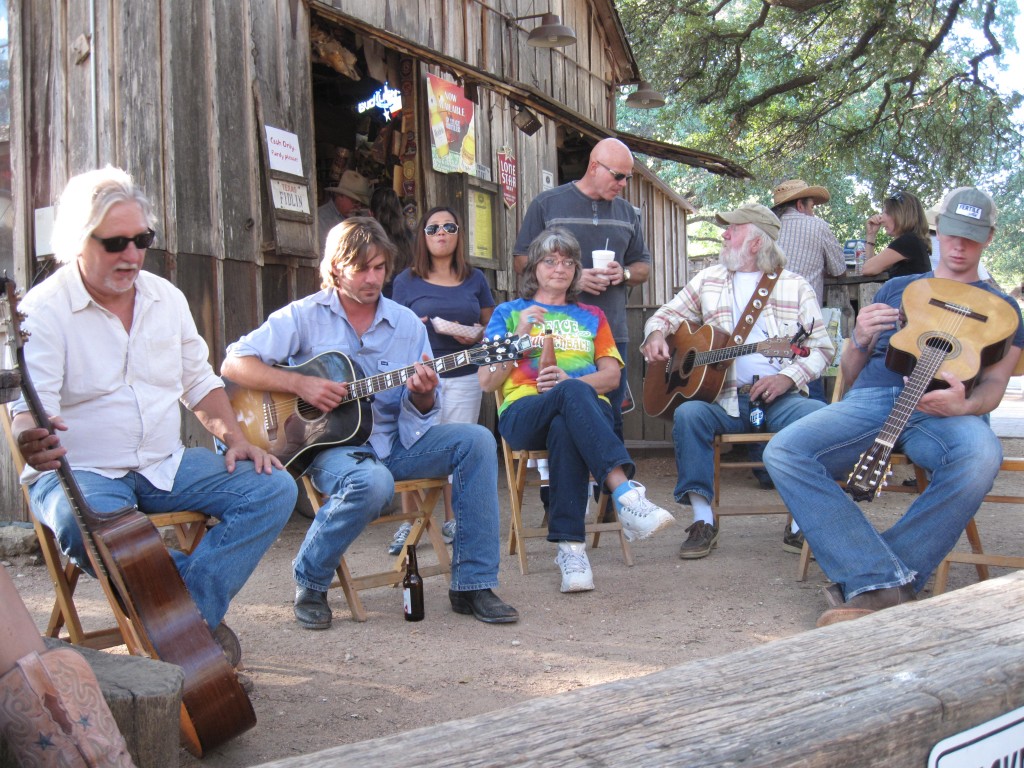
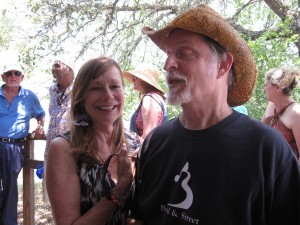 least that’s what I’ve observed. As the region becomes more racially and ethnically diverse, it’s possible they’re being marginalized as the Austin music scene grows more diverse. There’s also an age issue. When I go to Americana live gigs, most the people there are in their mid-thirties, or older. If you go to the Kerrville Folk Festival, for example, you’ll see a lot of gray hair. If the population of Austin is getting younger, then that could be contributing to the marginalization process. By the same token, we know that Austin, and perhaps much of Central Texas, is a beacon for retiring Baby Boomers; the size of the 65+ population has definitely increased over the last 10 years. I haven’t had a chance to systematically analyze the numbers to see what’s happening to the age structure of the population. And don’t forget about widening income inequality. One of its most problematic consequences is an increase in the cost of living, especially the cost of housing; widening inequality is inflationary. That’s definitely hitting musicians hard. Another component of widening inequality is wage stagnation for most people, except those at the very top. What appears to be happening to Americana musicians may be a special case of this more general phenomenon.
least that’s what I’ve observed. As the region becomes more racially and ethnically diverse, it’s possible they’re being marginalized as the Austin music scene grows more diverse. There’s also an age issue. When I go to Americana live gigs, most the people there are in their mid-thirties, or older. If you go to the Kerrville Folk Festival, for example, you’ll see a lot of gray hair. If the population of Austin is getting younger, then that could be contributing to the marginalization process. By the same token, we know that Austin, and perhaps much of Central Texas, is a beacon for retiring Baby Boomers; the size of the 65+ population has definitely increased over the last 10 years. I haven’t had a chance to systematically analyze the numbers to see what’s happening to the age structure of the population. And don’t forget about widening income inequality. One of its most problematic consequences is an increase in the cost of living, especially the cost of housing; widening inequality is inflationary. That’s definitely hitting musicians hard. Another component of widening inequality is wage stagnation for most people, except those at the very top. What appears to be happening to Americana musicians may be a special case of this more general phenomenon.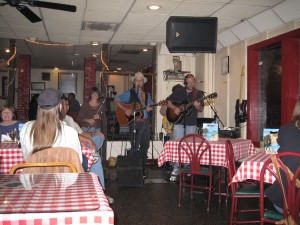 So it’s kind of building off that folk tradition of political and social activism in the lyrics?
So it’s kind of building off that folk tradition of political and social activism in the lyrics?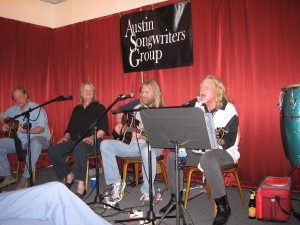 Roadhouse out Highway 71 west, Hondo’s in Fredericksburg, River City Bar and Grill in Marble Falls, and the Badu House in Llano. There are Americana venues in San Marcos and New Braunfels. And, of course, you can hear it in Luckenbach. Americana musicians also play a lot of house concerts.
Roadhouse out Highway 71 west, Hondo’s in Fredericksburg, River City Bar and Grill in Marble Falls, and the Badu House in Llano. There are Americana venues in San Marcos and New Braunfels. And, of course, you can hear it in Luckenbach. Americana musicians also play a lot of house concerts.
